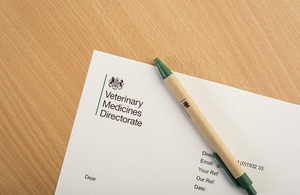Test and Trace services continue over the festive period
All test sites will remain open, with booking slots available on Christmas Day, Boxing Day, and New Year’s Day. Test site operating hours may be extended if there is increased demand for PCR testing.
Please book a PCR test if you have COVID-19 symptoms or if you have tested positive following an LFD test. You can book a test online or by calling 119.
People will be able to order LFD and PCR tests every day over the festive period. The 119 service will continue to operate on Christmas Eve and New Year’s Eve from 7am to 6pm, and Christmas Day and New Year’s Day from 7am to 5pm. On other days, the service will operate from 7am to 11pm.
In some cases, tests may take slightly longer than usual to arrive due to Royal Mail’s collection and delivery times over the festive period.
The public can continue to order a test via GOV.UK.
NHS Test and Trace contact tracers will also continue to work throughout the festive period, with services provided online through the self-service process on Christmas Day and New Year’s Day.
Dr Jenny Harries, Chief Executive of UKHSA, said:
The vital work of NHS Test and Trace will not stop for Christmas. I am very grateful to every single member of our staff who, right through the pandemic, have been part of our front line services against the pandemic. They will be sacrificing time with their loved ones to make sure testing and tracing continues, with minimal disruption to our services during the festive season.
With COVID-19 cases currently at record levels, we must continue with precautionary measures to help prevent the spread of the virus.
If you have any COVID-19 symptoms, you must self-isolate and take a PCR test as soon as possible. If you do not have symptoms, please take an LFD test before visiting vulnerable friends and family, and before situations where there is a higher risk of catching or passing on the virus. Continue to keep practising hands, face, space and increase ventilation when you are meeting indoors.
It remains vital to follow the guidance and make sure to take up the offer of a vaccine.
Due to Royal Mail collection times, people using home test kits will be given advice about how to return their kits during the festive period as some tests will need to be posted by midday on Christmas Eve and 31 December. There will be no collections on Christmas Day and New Year’s Day.
There will be a weekend collection service on 26 December, 27 December, 28 December, 2 January, and 3 January. In Scotland, a weekend collection service will also apply on 4 January.
Opening hours for testing sites (including local and drive through testing sites)
| Date | Opening hours |
|---|---|
| 24 December (Christmas Eve) | 8am to 6pm |
| 25 December (Christmas Day) | 10am to 2pm |
| 26 December (Boxing Day) | 10am to 2pm |
| 27 December | 8am to 6pm |
| 28 December | 8am to 6pm |
| 29 December | 8am to 6pm |
| 30 December | 8am to 6pm |
| 31 December (New Year’s Eve) | 8am to 6pm |
| 1 January (New Year’s Day) | 10am to 2pm (Northern Ireland 10am to 3pm) |
Opening hours for 119
| Date | Opening hours |
|---|---|
| 24 December (Christmas Eve) | 7am to 6pm |
| 25 December (Christmas Day) | 7am to 5pm |
| 26 December (Boxing Day) | 7am to 11pm |
| 27 December | 7am to 11pm |
| 28 December | 7am to 11pm |
| 29 December | 7am to 11pm |
| 30 December | 7am to 11pm |
| 31 December (New Year’s Eve) | 7am to 6pm |
| 1 January (New Year’s Day) | 7am to 5pm |

